Solving the Input Problem: Mark Fosdike – Cofounder and CEO of Datch on Building AI Solutions that Transform Industrial Frontline Work
Mark Fosdike, the CEO and cofounder of Datch, spent the majority of his early career as an engineer in aircraft and submarines. After experiencing first-hand how low tech frontline processes were limiting manufacturing output, Mark went on to cofound Datch with Aric Thorn and Ben Purcell, who had been experiencing the same frustrations within the utilities generation and transmission sectors . The trio built an interactive natural language engine that harnesses verbal, conversational dialogue in order to enable frontline workers to capture knowledge as it’s generated, creating a rich informational data set for their organizations. We sat down with Mark to learn more about his entrepreneurial journey, his keys for effective leadership, and the future of Datch’s frontline AI technology.
Tell us a little bit about your background.
My background is in real-world engineering. I studied and worked in aerospace, but also spent some of my early years working in submarines and shipbuilding.As an aerospace engineer, I was lucky enough to work on a number of groundbreaking projects: The first was designing and building the world’s first plasma-actuated roll control aircraft. I was also heavily involved in creating the world’s first carbon nanotube electrothermal ice protection system.
I was involved across different parts of the manufacturing process, which included design, testing, blowing things up, qualification, manufacturing, and flying around the world to meet with customers deploying our systems on their aircraft. I was incredibly lucky to spend time across the full spectrum of aerospace manufacturing, all the way from pre-design criteria through to seeing the transformation of raw metal into flying objects.
It was around this time that I met my cofounders, who were having very similar experiences in the energy and utilities sectors. Interestingly, we had all come to a similar conclusion: we were designing, building, and maintaining incredibly advanced real-world systems, but the software used at the frontline that enables the design, operations, and maintenance of these systems was stuck in the past.
For several years, Aric Thorn (one of my cofounders at Datch) and I were neighbors, and we would come home and build together: e.g. autonomous flying drones, self-built IOT home devices. But we had bigger ambitions. Since we liked building things together, and we were seeing common problems across the industry, let’s solve something real. And that was what kicked everything off.
We had some ideas for what we wanted to solve, but first jumped in a car and drove around the country, talking to manufacturers about their biggest problems. We learned a lot, but the most interesting insight was that managers were saying, “My frontline teams spend far too much time writing information into our systems of record. The quality of the data sucks, and we still lose 1-2 hours per technician! Can you help us with that?”
All these conversations led to a lightbulb moment for us, in the form of two words: ‘input problem’. We realized that the way we capture information hasn’t changed in 30 years at best, hundreds of years at worst. We saw this as a clear problem for us to solve, and that emerging technologies across the AI landscape were well suited to help us solve these.
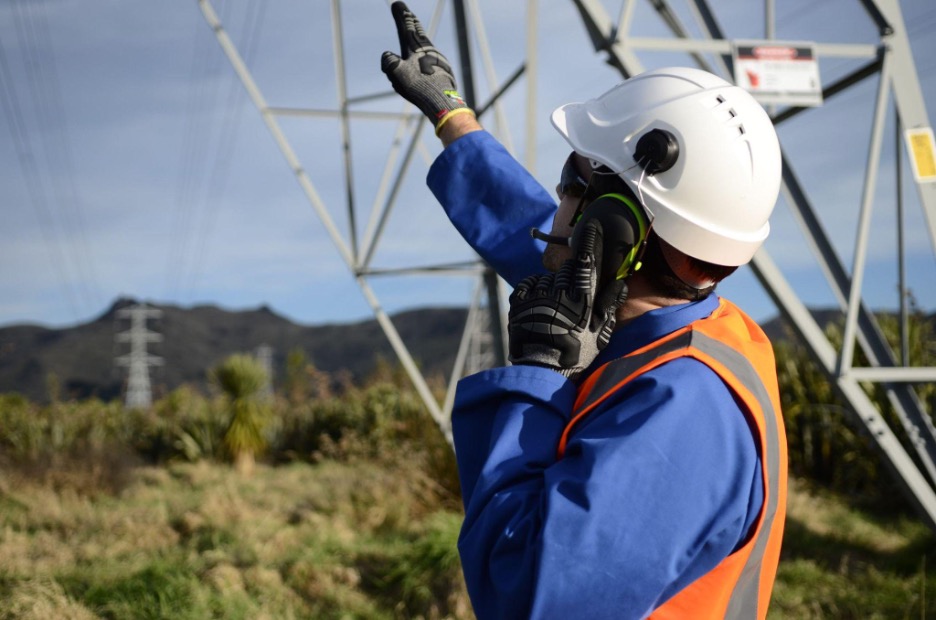
How do the skills you picked up during your engineering career translate to your career as an entrepreneur?
It’s systems all the way down! If you’re an engineer, you’re a master problem solver. And you’re framing goals as a set of problems that you need to solve in order to reach a specific outcome. As an engineer I’ve also pursued a deep, generalist skill set throughout my career and it has helped me to tackle problems in novel ways.
I see entrepreneurship as no different than that. If you’re a good engineer, and know how to talk to people, you can be an excellent entrepreneur.
What was your journey like into familiarizing yourself with the world of AI, then eventually building a product with it?
Neither myself nor my two cofounders were AI experts before we started Datch, coming from the founder/market side, rather than the software side. We knew how to code, and had experience in machine learning, but questioned whether we could deliver on these lofty ambitions. I remember Aric saying, “Building the tech will be hard, just like building the business. But we’ll learn quickly as we alway do, and bring in the best people to help us accelerate.” He was 100% right with this blueprint.
Years later, we’re now experts in the field, advising the biggest enterprises in the world on their AI strategy, and delivering an AI solution that makes a true impact on frontline operations.
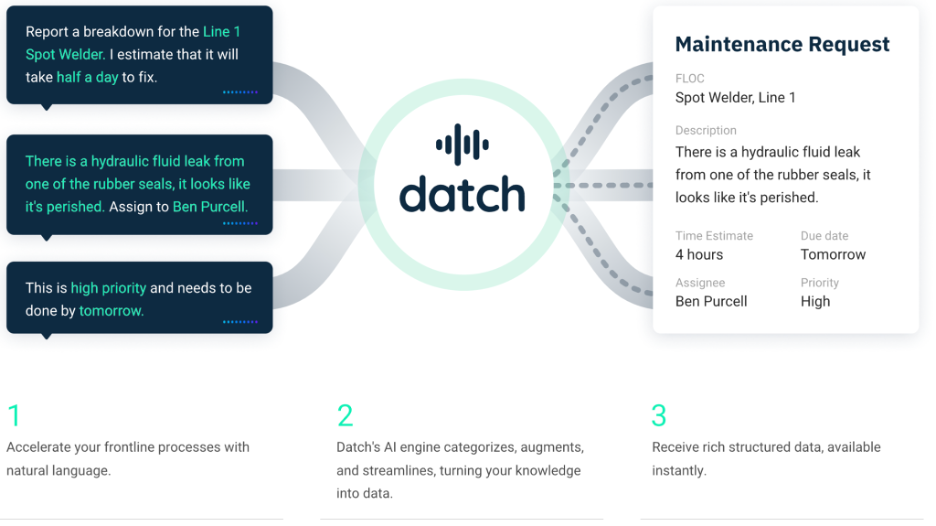
What would you say are the most important tenets of your team culture?
We value collaboration, camaraderie, and balance. It’s a marathon, not a sprint. The team works incredibly hard, but we also recognize that some of the smartest and hardest-working people also have families and other commitments. We have a culture of flexibility, so if someone needs to pick up their children from school, go to an appointment, or take a week to work somewhere else, they have the space to do that.
There’s this idea of balance, but also this idea of working hard towards a common goal. We’re mission driven, and continue to drive towards a core focus, which is to help industry thrive by more effectively connecting the frontline. This helps us hone in on our product, positioning, and product vision, and having a North Star that everyone gathers around is essential for delivering at pace.
You mentioned balance and how important balance is, how do you make sure to keep a balance in your daily life? Can you tell us a little bit about your daily routine?
I’m based in New York, but I also work closely with our engineering and product teams in New Zealand, so I tend to work late into the night. As a counterbalance, I take off Wednesday nights from 7pm, so I can go out for dinner with my wife, or go see a show. I also try to hit the gym first thing in the morning and carve out some time on the weekends for friends. It’s true that if you’re not recharging, you’re not at your most productive.
I think something unique about our culture of balance is that it’s a good mix of kiwi and US culture. If you think about kiwis, one of the first things that comes to mind is a prioritization of work-life balance. This is blended with the American culture of hard work, where even time-off, meals, and conversations are often treated as inputs that help drive productivity. This combination merges well, because we get a unique balance of this incredible American work ethic alongside the equally important kiwi emphasis on work-life balance. And from a business perspective it pays off with high output plus strong retention.
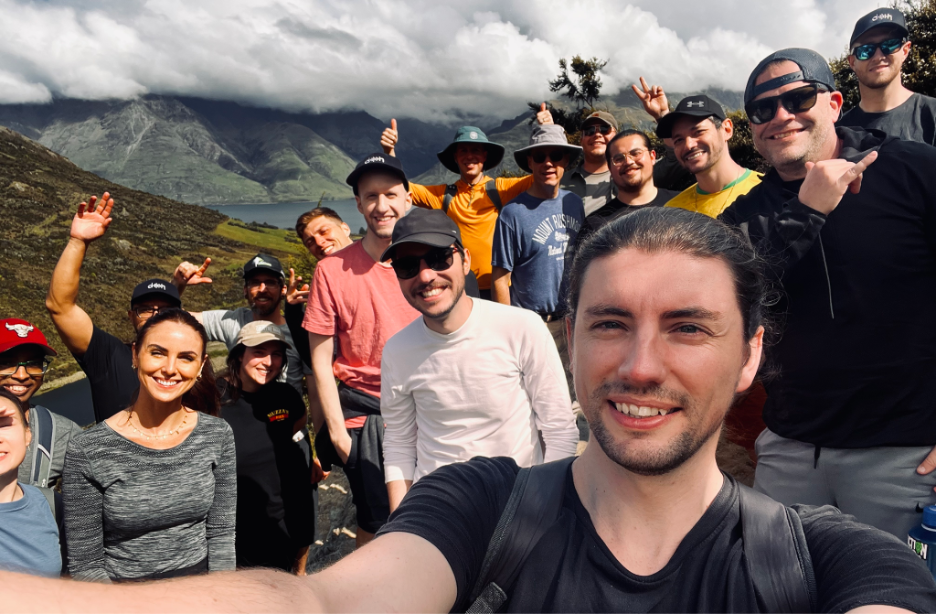
Can you speak to what’s next for Datch?
We’re 2 weeks away from launching a turnkey solution on our platform called Datch for Asset Management. This is a mobile solution that plugs directly into systems like SAP PM or IBM Maximo, and allows operations and maintenance teams to manage their assets effectively from the frontline, while using AI to increase productivity, enrich data coming in from the field, and make better decisions based on intelligent insights.
Moving forward, we’ll be consolidating the platform, further building out our integration network, and delivering more solutions to our enterprise clients around the world. This platform is not only the key to helping us scale, but also the key to helping our customers scale as well.
We see the future of frontline work as one in which the software layer is almost invisible, but enables natural human interactions while providing the high quality data needed in the age of Industry 4.0. If you think far enough into the future, it’s inevitable: if you’re using your hands, working on real-world equipment, the best form of interaction is going to be that which is natural and amplifies the worker’s skill set and experience. We’re charging down this path toward that future. We’re also bringing in a broader set of tools that use Datch’s interface layer to enable deep analytics and insights for our customer base.
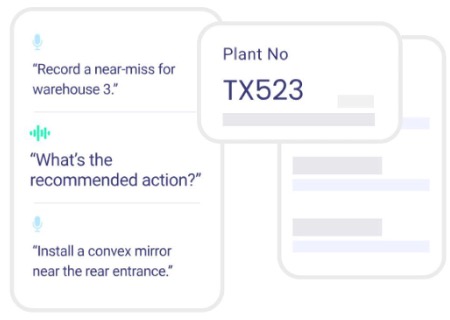
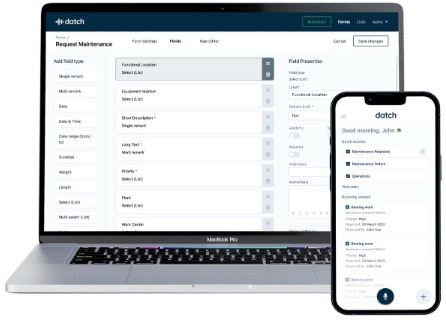
Is there anything else you’d like to share?
We’re hiring! Check out our jobs board here. We’re always looking for smart, driven people who are inspired by our mission.